The Department of Biological and Agricultural Engineering is committed to making our Aggie graduates the most sought-after candidates in the workforce by going beyond the core curriculum and providing our students with the skills and experiences that employers desire most. To help our students succeed in a rapidly changing world, the department is taking education beyond the classroom and working to ensure that each student experiences at least one high-impact learning experience.
What is High Impact Learning?
Colleges and universities nationwide, together with employers and entrepreneurs, have studied and recognized a great need to broaden a students’ college experience to be better prepared for their professional lives. High-impact learning immerses students in hands-on experiences outside of the classroom. Students work closely with diverse individuals, including faculty and peers. Some examples of high-impact learning practices are study abroad programs, honors programs, internships, leadership roles, and undergraduate research. Such experiences offer frequent feedback on performance, allow students to apply what he/she learns in the classroom, and connect academics to professional development.
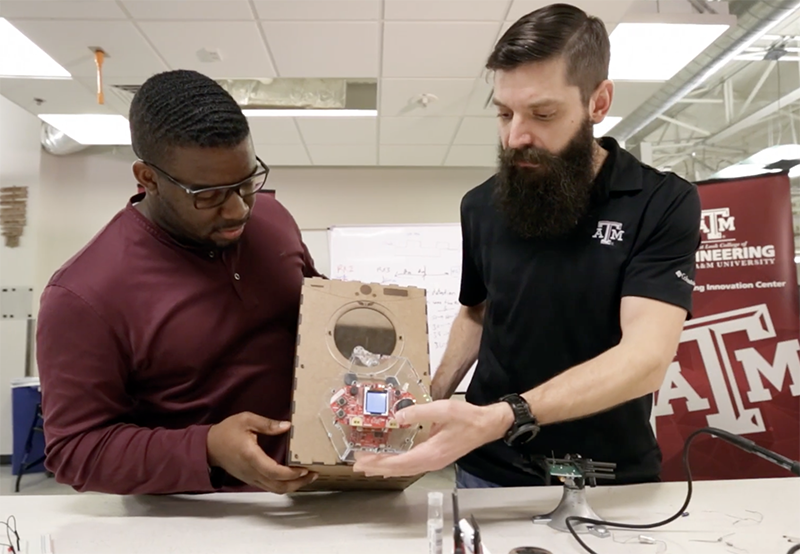
ENGR[X]
The College of Engineering is committed to enhancing engineering student education through high-impact experiences, also known as ENGR[X]. Incoming engineering undergraduate students are required to obtain one high-impact learning experience before he/she graduates from Texas A&M University. To learn more about high-impact opportunities/ENGR[X] in the Biological and Agricultural Engineering department see below.
Explore High-Impact Learning Experiences
Honors Program
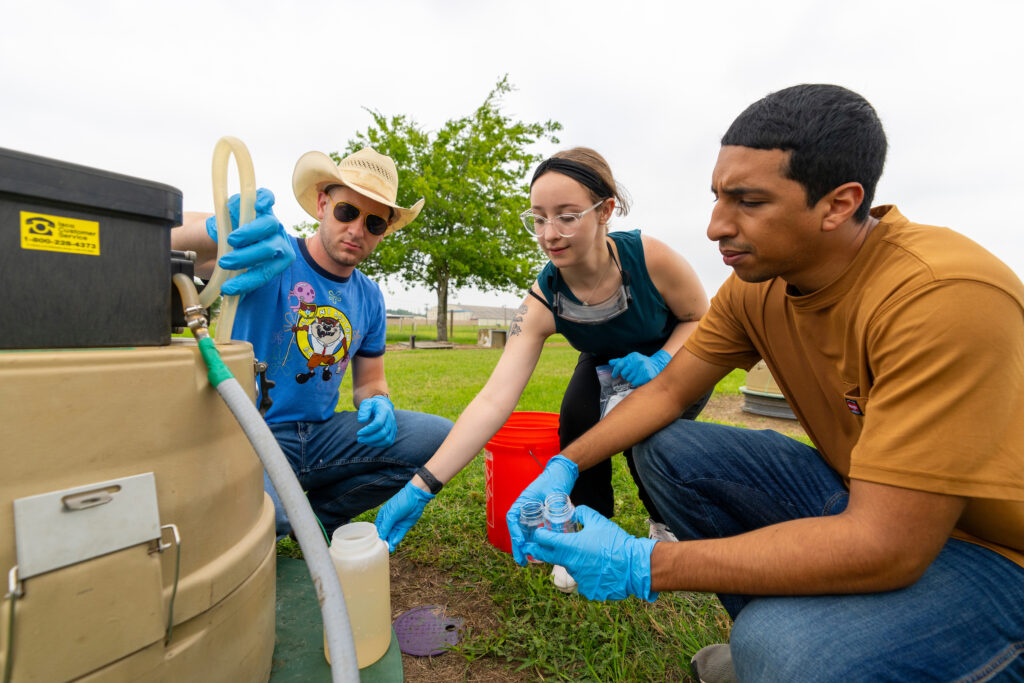
Internships
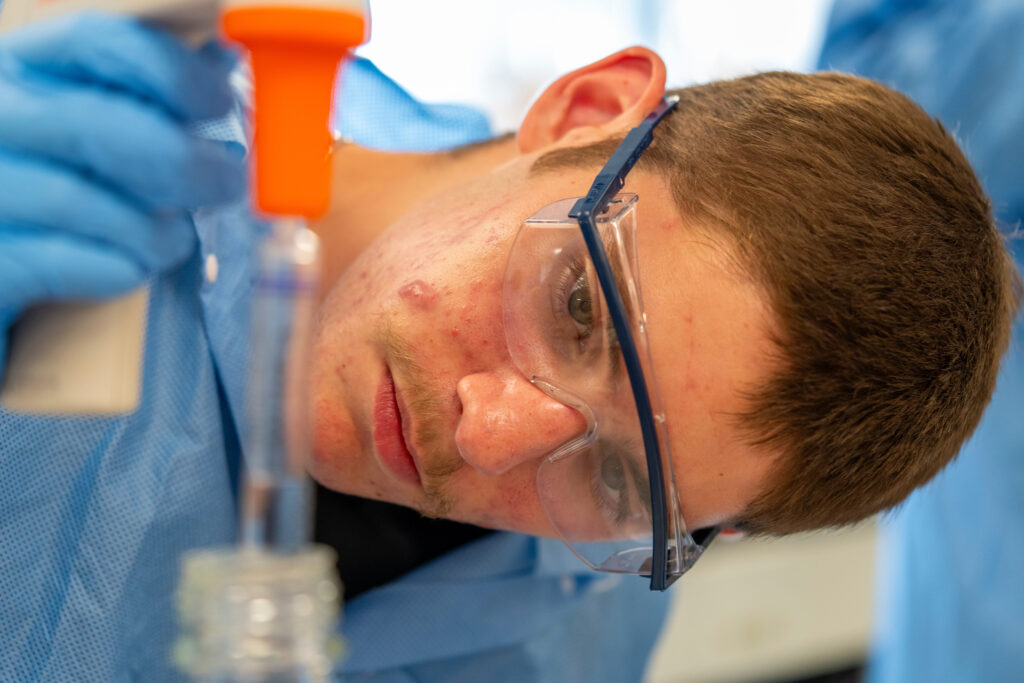
Research
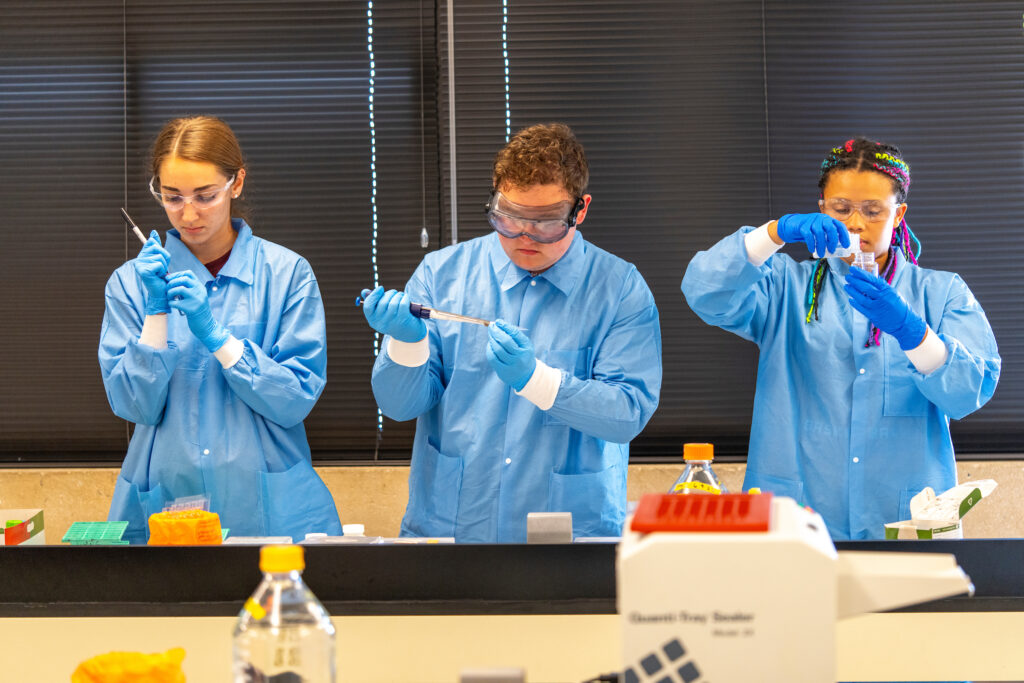
REEU
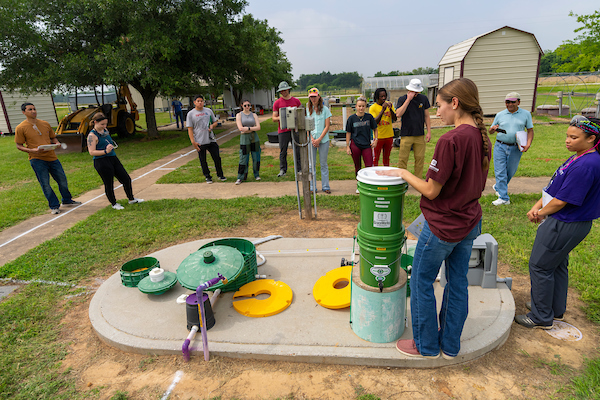
Student Club Leadership

Texas A&M Aggie Pullers
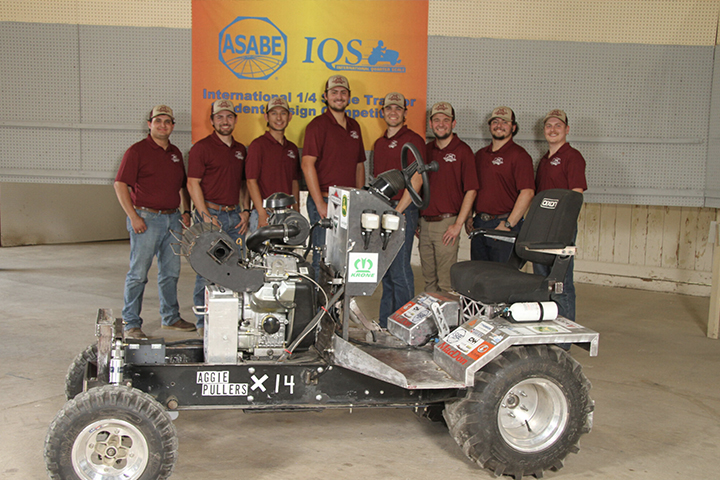
Honors Program
The departmental honors program was established for students who accept the challenge of an engineering degree, but who recognize that they need extra opportunities and preparation to achieve their goals. These are students who are interested in more than a job – they want to invent, imagine, create, explore and inspire. The links below provide more information about the different honors opportunities at Texas A&M.
- Biological and Agricultural Engineering Departmental Honors Program
- Craig and Galen Brown Engineering Honors
- Texas A&M University Honors Programs
- LAUNCH Honors Program
How to fulfill ENGR[X] credit for honors:
A student’s registration and submission of approved deliverables for the approved honors program in the department will serve as proof of credit. Grades of D, F and U will not be considered as fulfillment of ENGR[X] credit.
Internships
According to the National Association for Colleges and Employers, over 1.5 million students complete an internship each year. Internships are a valuable way to obtain professional development and exposure to possible career avenues. To learn more about internships contact Ashlea Schroeder, [email protected].
Students must complete the Internship Approval Form before the student will be allowed to enroll in the selected internship course. Students should plan accordingly to ensure enrollment in the course can be completed in the semester the student wishes to pursue an internship. It is highly suggested that students complete and submit the form during the pre-registration period. Forms submitted too near the beginning of the semester have a high chance of being denied. Forms submitted after the semester has begun will be denied.
How to fulfill ENGR[X] credit for internships:
Students should complete the Internship Approval Form for review before the beginning of the term in which the internship will occur. Once complete, the approval form will be reviewed by the Associate Department Head for Academic Programs. If approved, the internship course will be placed on your academic record. At the conclusion of the student’s internship, the student will be required to complete the Internship Reflection Form. Grades of D, F and U will not be considered as fulfillment of ENGR[X] credit.
Research
The Council for Undergraduate Research defines undergraduate research as “…the inquiry or investigation conducted by an undergraduate in collaboration with a faculty mentor that makes an original intellectual or creative contribution to the discipline.” It is recognized as one of Texas A&M’s high impact practices that prepares students for the workplace and society. Students connect with faculty and graduate students who, in addition to research, are able to offer advice about career paths and applying for graduate school admissions and fellowships. To learn more about the departmental research program(s) contact Ashlea Schroeder, [email protected].
Students must complete the research approval form before the student will be allowed to enroll in the selected research course. Students should plan accordingly to ensure enrollment in the course can be completed in the semester the student wishes to pursue research. It is highly suggested that students complete and submit the form during the pre-registration period. Forms submitted too near the beginning of the semester have a high chance of being denied. Forms submitted after the semester has begun will be denied.
How to fulfill ENGR[X] credit for research:
A student’s registration and submission of approved deliverables for the approved research course in the department will serve as proof of credit. Grades of D, F and U will not be considered as fulfillment of ENGR [X] credit.
Student Club Leadership
Texas A&M is home to more than 1,000 student organizations, meaning there are more than 1,000 opportunities for students to find other Aggies who share similar interests and passions. The Department offers two academic student clubs and several research/design clubs. To learn more about the opportunities for departmental students see the links below.
How to fulfill ENGR[X] credit for student clubs:
Students should submit their desire to use a student club leadership role for ENGR[X] credit to Ashlea Schroeder before the beginning of the term in which the student club leadership will occur. Once complete, the request will be reviewed by the Associate Department Head for Academic Programs. If approved, the student club leadership course will be placed on your academic record. At the conclusion of the student’s club leadership, the student will be required to complete the Student Leadership Reflection form. Grades of D, F and U will not be considered as fulfillment of ENGR[X] credit.
Texas A&M Aggie Pullers
The Aggie Pullers is a hands-on student organization that is dedicated to designing, managing and presenting a quarter-scale tractor each year. Students from all majors are welcome to join Aggie Pullers. To learn more about the Aggie Pullers team contact Dr. Robert G. Hardin, [email protected]
How to fulfill ENGR[X] credit for the Texas A&M Aggie Pullers:
Students should complete the Aggie Pullers Reflection form. Once complete, the submission will be reviewed by the Associate Department Head for Academic Programs and, if approved, the course will be placed on your academic record. Only students with verified, substantial involvement will be eligible for ENGR[X] credit. Grades of D, F and U will not be considered as fulfillment of ENGR[X] credit.